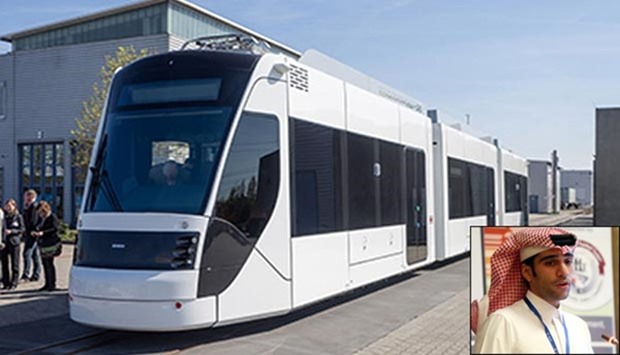Trams will start running in Qatar Foundation's (QF) Education City by the end of this year or early next year, a senior official has said.
“We have already received the first batch of rolling stocks for the QF Tram System," Capital Projects engineer Ahmed al-Khanji told the Smart Parking Conference on Tuesday.
The Red line will connect all four car parks (three in the south and one in the north campus), which are strategically located in the perimeter of Education City and serve as transportation hubs for the campus.
People can use the trams to go to the north campus, serving the staff housing, Sidra and Qatar National Convention Centre (QNCC), according to al-Khanji.
As Education City aims to become a car-free campus, the objective is to encourage people to use the trams, as well as other public transport such as GPS-enabled bikes or buses, he noted.
“Riders cannot be lost by using these bikes and we hope to have more in the future. Charging stations are also located at various points in the campus,” the QF official observed.
He said this initiative will help reduce carbon emissions, a way of “taking care of people’s health.”
Each of the car parks is connected to the tram stations for people to totally depend on public transport as they get into and move around Education City.
Al Shaqab and QNCC car parks can accommodate around 3,000 cars each. The Academy car park, which has a tunnel connected to the schools, can also house 3,000 cars. It will serve as a VIP car park during the 2022 FIFA World Cup. The Oxygen underground car park can take 1,500 cars.
Lauding the efforts of QF, the Ministry of Municipality and Environment's Capacity Building and Research and Development head Ali A Alraouf said Education City was setting an example and a new benchmark in Qatari planning and urbanism.
“Number one, it is a manifestation of knowledge-based urban development and how the country is moving towards a new paradigm where relying on oil and gas is not really going to sustain our life here,” he pointed out.
“Number two, QF and Education City in itself is becoming a showcase for how we can enhance our relation with our spaces, streets, buildings, parks and gardens,” the MME official noted.
QF had announced in August last year that Siemens, the German-company tasked with the tram project, is set to provide a total of 19 trams. With a capacity of 234 passengers per tram, including 60 seated, the system is set to transport an average of about 3,000 people in each direction every hour, with 17 trams operating, some at four-minute intervals during peak times, it was announced earlier.

The trams will connect all four car parks at Education City. Inset, Ahmed al-Khanji
